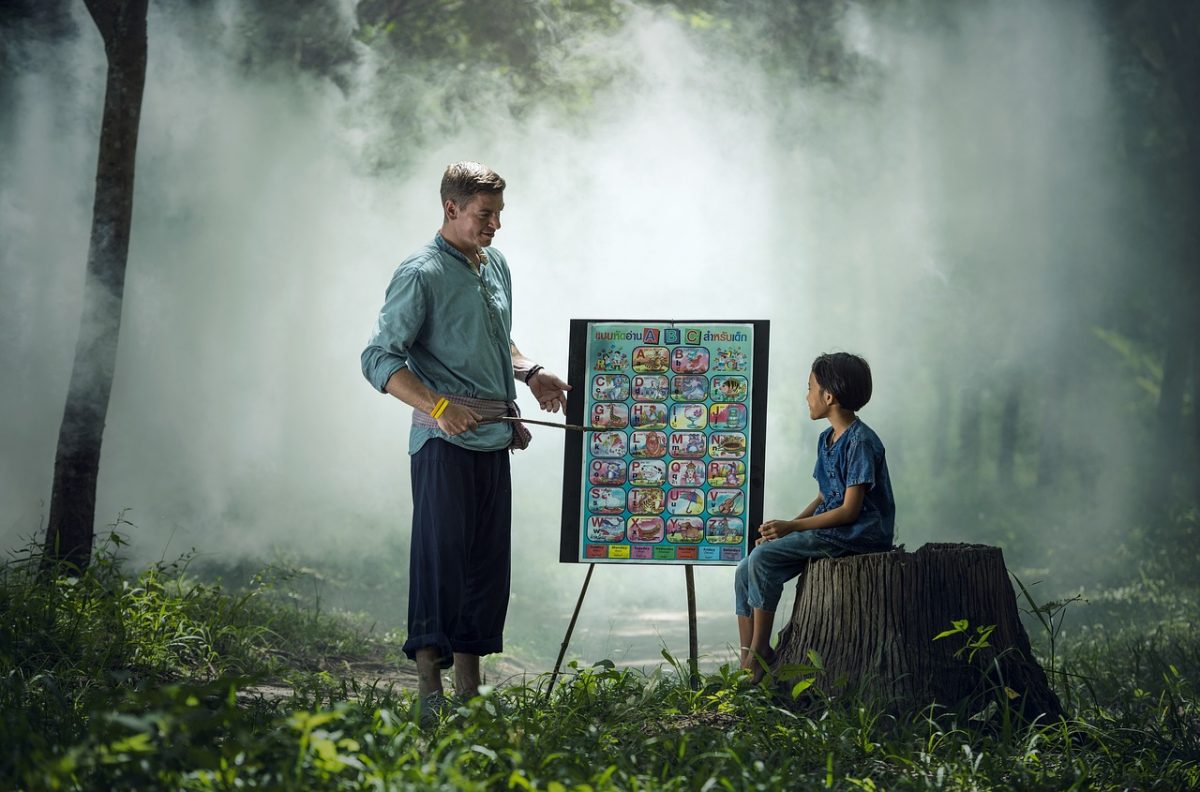I am finally a high school senior. I don’t need a bathroom pass anymore, I can walk in the hallways with headphones on, my teachers don’t check if I have written down homework assignments on my planner, and I don’t have to do typing pal anymore. While being a senior has granted me independence and agency in many different ways, I have never felt more powerless, young, and immature. As I take the final steps that shift the trajectory of my future, I find myself clamoring for advice from the mentors around me. Over the past year, I have been feverishly asking questions to my parents, my visiting grandma, my siblings in college, my soccer housers, my teachers, and virtually any adult that will talk to me. While I haven’t recorded all of these conversations, earlier this year, I sat down with three of my IB teachers and chatted with them about the advice they would give to other high school students.
Sarstedt – IB Theatre
One of the most optimistic teachers, whom I see every morning during homeroom: Mr. Sarstedt. I asked Mr.Sarstedt what advice he would give me, a 12th grader halfway through the IB, focused on my IAs and university applications. As a drama teacher, he gave me a very fitting response.
He emphasized the value of looking to my peers to seek empathy and support. A part of why he loves teaching drama, he says, is the sense of an “ensemble”, which is a group of people who work closely together to perform a piece of theater. Theatre is all about collaboration, empathy, and support, he told me. Something that he learned working with music, bands, and ensembles throughout his life is that fueling your life with only personal ambition is not sustainable. It is not healthy to be driven by rivalry, but rather a shared purpose. He expressed how important it is to have a sense of community, to celebrate each other’s accomplishments, and to encourage each other as opposed to competing with each other.
Mr. Sarstedt has noticed that because of the pandemic, our abilities as students to build and maintain a strong community may have been hindered. With that being said, he also noted that he really appreciates how FIS works to create a sense of community. For example, even though it only lasts for 12 minutes of each school day, homeroom can be really grounding and helps to unite students as a group, he tells me. From reading the news together in the morning to running around the school for homeroom challenges, to strolling around museums on our Berlin trip, we as students have created a mini school family that works to ground us every morning. These people, these families, are important to look to during times of uncertainty and change.
Later I asked Mr. Sarstdedt about his outlook on life, and I knew that his response would be something along the lines of approaching the world in an optimistic manner. I was right. He always sees the silver linings in things, he said. On Complaint Thursdays—a Thursday homeroom routine where we share any complaints we have—Mr. Sarstdet hears us listens to us, and offers an optimistic outlook. Over the past three years, Mr. Sarstedt has created a safe, comforting, and inclusive homeroom that I will forever be grateful for.
Ahmed – IB Business
Aligning with being an IB business teacher, Mr.Ahmed approaches life with realism. He told me that while being optimistic and aiming for the best, he always tries to take account of variables and risks when making decisions.
Mr. Ahmed was never an IB student, he told me. He grew up in Mombasa, Kenya, and didn’t have many of the resources that FIS students have at their disposal. He encourages students at FIS to capitalize on these opportunities because they are not offered everywhere. From the various leadership positions in sports teams and service groups to the internship, and support from teachers, FIS offers a variety of opportunities that can be incredibly beneficial and that we, unfortunately, often take for granted.
We continued to talk about how many IB students feel stressed about making the “right decisions” for their future paths. He listened to my worries, validated my feelings, and assured me that it is not the end all be all. Naturally, students feel a lot of pressure to maintain their high academic standards, select the right courses, and apply to the right universities. But if something is to happen and if the IB doesn’t end up going too well, or you are unsuccessful in university, or when you inevitably face difficulties in life, it is not the end of the world. Things will of course be harder, but the world will continue to move forward. You will have to do the hard work to keep going, but you can go step by step. He liked the analogy of doors. When doors are closed, other ones will open. It can start with luck, but it is ambition that propels it forward. Constantly keep moving forward.
I asked him what he has to say to the students who don’t know what they want to major in. He told me that they should take it step by step. Keep your options open and continue to work. As you approach the college deadlines, you will figure things out and things will unfold. Keep your options open and continue to work hard.
Brown – IB Psychology
A teacher that every student confides in: Mr. Brown. Naturally, as a psychology teacher, Mr.Brown is introspective and constantly evaluating his actions. His outlook on life is to “stay calm and put everything into perspective”. He explained that we are not always right, even though that part of our brain tells us we are. “Learn to listen to others” and to engage with your peers. Learn to develop criticism and critical thinking—which is very fitting for psychology. This will not only help us stay sharp but help us develop skills to approach the ever-evolving world.
When I asked him what advice he would give to 11th and 12th graders, he gave me a very clear answer.
“If you can achieve one thing in senior year,” he said, “adopt effective relaxation methods”. It is imperative to learn how to handle stress. We will always have stress, but the one thing we can change is how we deal with it, he told me. In his life, he rewards himself every week by cooking two special meals. Putting on an apron, carefully slicing and sauteeing produce, and enjoying a warm meal is his small ritual of relaxation.
I also learned that you will never catch Mr.Brown rushing for the train. He knows that being late induces stress for him, so he intentionally plans his day to minimize any potential stress. He also does not save grading papers until the last minute, because he knows it will stress him out. These small, mundane practices, are what help him decrease his stress levels. Identify what brings you stress, and try to organize your routines to account for it. Students don’t need to be running into an exam, frantically revising their notes, or comparing themselves to their peers, he told me. These habits only increase stress levels and are entirely avoidable. He encourages us to develop and nurture our own stress-relieving practices so that we can sustainably live through stress.
What I took away from these conversations is that we do not know what our lives will look like, and that is okay. As 11th graders move towards secondary education and other endeavors, we are under the impression that every small choice we have to make is weighty and definitive. While these choices do matter, as we continue to move forward, things will eventually begin to unravel. During these times, it is important to keep your options open, take the steps to effectively manage your stress, and look to the people around you for support.






